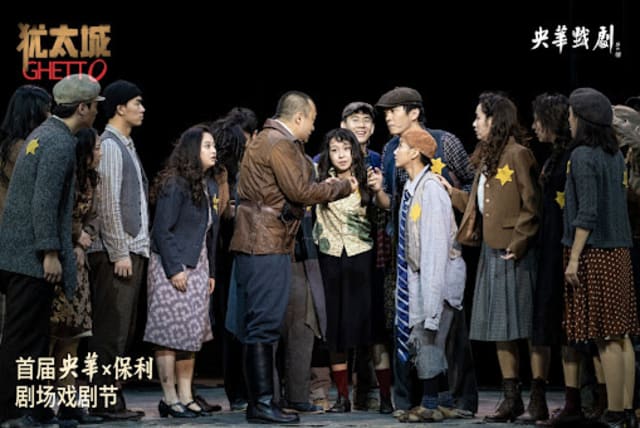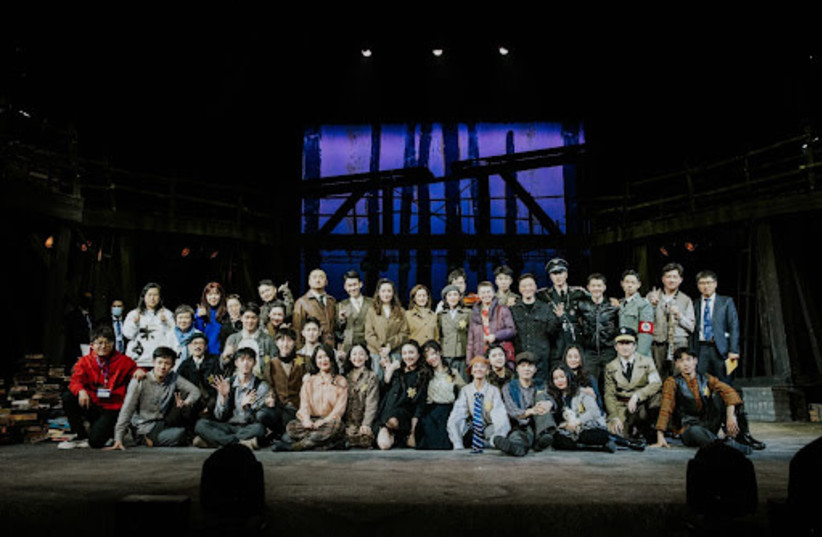Chinese version of Israeli play Ghetto staged in Beijing

To mark International Holocaust Remembrance Day, which is observed on January 27, the Chinese production of “Ghetto,” an Israeli play that tells the story of the Vilna Ghetto during the Nazi occupation in World War II, was staged at the Poly Theater in Beijing on January 11 and 12.
The performance was jointly supported by the Israeli and German embassies in China to mark International Holocaust Remembrance Day. A number of foreign diplomatic envoys were in attendance, including H.E. Irit Ben-Abba and H.E. Patricia Flor, the Israeli and German ambassadors.
The play was the first in-depth cooperation between Chinese and Israeli theater teams and is a milestone in the exchanges between the Chinese and Israeli theater circles.

“Ghetto” was first performed at the Haifa Theatre in Israel in 1984, has since been staged in over 25 countries, including Germany, Britain and the United States, and has been translated into 20 languages. The Chinese adaptation premiered in China in 2018 to wide acclaim.
Anais Martane, the French-Jewish photographer and spouse of Chinese actor Liu Ye, brought the play to China, and was the lead actress and co-producer of the Chinese adaptation of the play.
Directed and written by Israeli playwright Joshua Sobol, the play is based on the true story of a theatre that operated in the Jewish ghetto of Vilna during the darkest days of the Holocaust.
“We were surprised to learn that records exist of people coming to the theatre and paying for shows during the Nazi occupation in World War II,” Martane said. Records indicate that every performance played to a full house during a period when people had little food to eat, she added. Most audiences felt the strength of life through the story, she explained.
“I think that presenting this show in China is very important, because it will help Chinese audiences learn about the history of the Jewish people, the Holocaust, and World War II,” said Erez Katz Volovelsky, spokesperson of the Israeli embassy in China. He added that it is important for the younger generation to become familiar with these historical events.

